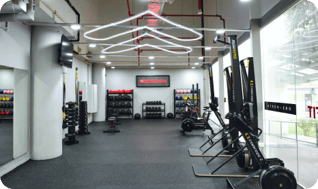Heel pain is a common concern among children and adolescents, often disrupting their active and playful lives. One of the most frequent causes of heel pain in this age group is Calcaneal Apophysitis, also known as Sever's disease. As a podiatrist, I'd like to explain what Calcaneal Apophysitis is, who it affects, the symptoms to watch out for, and how podiatry can provide effective management and relief.
What is Calcaneal Apophysitis?
Calcaneal Apophysitis, commonly referred to as Sever's disease, is an inflammation of the growth plate in the heel. The calcaneus, or heel bone, contains a growth plate at its back which is particularly susceptible to stress and microtrauma during periods of rapid growth. This condition is categorized as an overuse injury, often resulting from repetitive stress and strain on the heel.
Who Gets Calcaneal Apophysitis?
This condition primarily affects children and adolescents, typically between the ages of 8 and 15. This age range is significant because it coincides with growth spurts when bones, muscles, and tendons grow at different rates. Active children who participate in sports involving running, jumping, or repetitive impact on the heel are especially at risk. Activities such as soccer, basketball, gymnastics, and track and field are commonly associated with this condition.
Symptoms of Calcaneal Apophysitis
Symptoms of Calcaneal Apophysitis can vary in severity, but common signs include:
- Heel Pain: Pain is usually felt at the back or bottom of the heel, often on both sides. The discomfort tends to be worse after physical activity or first thing in the morning.
- Tenderness: The heel may be tender to touch, particularly on the sides.
- Swelling: Mild swelling around the heel can occur.
- Difficulty Walking: Pain can lead to a noticeable limp or difficulty walking, especially after exercise.
- Stiffness: There may be stiffness in the heel and lower leg, particularly after periods of rest.
How Podiatry Can Help

Podiatrists can play a crucial role in diagnosing and managing Calcaneal Apophysitis. Here’s how podiatry can help:
Diagnosis
We will perform a thorough examination, including a medical history review and physical assessment of the heel. Imaging techniques, such as X-rays, may also be used to rule out other potential causes of heel pain.
Management Options
- Rest and Activity Modification: Reducing or modifying activities that exacerbate the pain is essential. This might involve taking a break from high-impact sports or switching to low-impact activities such as swimming or cycling.
- Ice Therapy: Applying ice to the affected heel can help reduce inflammation and relieve pain.
- Footwear Adjustments: Wearing supportive footwear with good cushioning can significantly impact the healing process. We may recommend specific types of shoes or insoles that provide better arch support and shock absorption.
- Orthotics: Custom orthotic devices can be designed to support the heel and reduce strain on the growth plate. These orthotics help distribute pressure more evenly and provide relief during activity.

- Stretching and Strengthening Exercises: We often recommend specific exercises to stretch the calf muscles and Achilles tendon, which can alleviate tension on the heel. Strengthening exercises for the foot and ankle can also promote better support and function.
- Pain Management: In some cases, over-the-counter pain relief medications or anti-inflammatory drugs may be recommended to manage pain and inflammation.
- Education and Prevention: We educate both the child and their parents on proper foot care and techniques to prevent recurrence. This includes advice on appropriate footwear, activity modifications, and the importance of gradual increases in physical activity.
Long-term Approach
With appropriate treatment and management, most children with Calcaneal Apophysitis recover fully without long-term complications. The key is early intervention and adherence to the recommended treatment plan.
Conclusion
Calcaneal Apophysitis, though painful and disruptive, is a manageable condition with the help of a skilled podiatrist. By understanding the symptoms and seeking timely treatment, children can return to their active lifestyles with minimal interruption. If your child is experiencing heel pain, consider consulting a podiatrist to ensure they receive the best care and support for their growing feet.


.png?width=301&height=187&name=Website%20Navigation%20Images%20(3).png)

-1.jpg?width=1984&height=1196&name=UFIT%20Club%20Street%20Front%20(4)-1.jpg)





